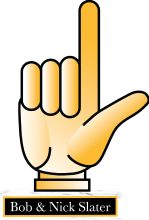“It’s only by saying no that you can concentrate on the things that are really important.” Steve Jobs
You are anything but a slacker. You’re a team player, and you like your job, your company, and the people you work with. But you’re operating at maximum capacity. And here comes your manager to throw more work on your stack. Or perhaps you have multiple people who assign you work, and they pile on without seeming concern about what others may have heaped upon your plate. How do you say “no” at work without feeling guilty, and without jeopardizing your career?
Here’s suggesting you not lose sleep over the feeling guilty part. A study of five thousand managers and employees found that the highest-ranked performers mastered the art of “selectivity.” Whenever they could, highest-ranked performers determined what was important to focus on – what really moved the needle toward the achievement of their goals and the success of their team – and what was non-essential. To the greatest extent possible, they said “no” in order to excel. They avoided meetings, calls, new assignments, and activities of every sort they deemed diversionary, and focused instead on these key priorities. The study found that in terms of performance, this selectivity mattered even more than talent or hard work.
Your objective as a young professional is to differentiate yourself – to stand out while fitting in. Doing so will require saying “no” from time to time to achieve this selectivity. Having more work than you can perform to a high standard is ultimately career limiting. The quality of your work is unlikely to be a differentiator if you labor under a constant and crushing workload. You can expect that anyone who assigns you work will be consulted about your performance at review time, if not before. For your career to move ahead, all such persons must be enthusiastic about the quality of your contribution. You must advocate for a workload that allows you to do your best work without being perceived as a slacker.
So, no need to feel guilty. Being selective about what and how much you take on is essential to helping your company achieve what matters most and to maintaining your career trajectory. For some, though, even though they know the quality for their work will suffer, it seems easier to say “yes” to more and more work than it does to have the courageous conversation required to say “no.” How do you respectfully say “no” to your manager without jeopardizing your career? Here are some thoughts.
- Contribute first, then advocate. You must earn the right to say no. Your arguments as why you should not do something will be better received if there is no doubt about your commitment, your work ethic, and your can-do spirit. For you, respectfully pushing back and saying “no” is the exception, not the rule. So when you do, it will be taken seriously. The simple fact is more leverage exists for those who contribute and who are perceived by those above as contributing.
 A number of years ago, my company was involved in a major merger, deemed the first “merger of equals” in our industry. While ultimately a resounding success, there were plenty of long, difficult days as we sought to determine and implement best practices, and to discover who best fit where, all while trying to satisfy financial promises that had been made to Wall Street. The merger was bi-coastal, and the workload and time involved, including extensive travel, was exhausting. Those leading the various merger teams and initiatives couldn’t have been more dedicated to the cause, but they were running on fumes. Into this mix a leadership meeting was held, run by a consultant whose purpose was to introduce a series of new initiatives and procure volunteers to lead them. The silence was deafening, uncharacteristically so for a room full of such can-do people. But these leaders knew the ship was unsteady, and that taking on more at this juncture was unwise. With few concessions, the team said “no.” The “no” was tolerated for a time due to the unquestioned contribution and commitment of those saying it.
A number of years ago, my company was involved in a major merger, deemed the first “merger of equals” in our industry. While ultimately a resounding success, there were plenty of long, difficult days as we sought to determine and implement best practices, and to discover who best fit where, all while trying to satisfy financial promises that had been made to Wall Street. The merger was bi-coastal, and the workload and time involved, including extensive travel, was exhausting. Those leading the various merger teams and initiatives couldn’t have been more dedicated to the cause, but they were running on fumes. Into this mix a leadership meeting was held, run by a consultant whose purpose was to introduce a series of new initiatives and procure volunteers to lead them. The silence was deafening, uncharacteristically so for a room full of such can-do people. But these leaders knew the ship was unsteady, and that taking on more at this juncture was unwise. With few concessions, the team said “no.” The “no” was tolerated for a time due to the unquestioned contribution and commitment of those saying it.
- If you know a conversation is coming, prepare for it. Sometimes a request that you take on more work, or lead a new initiative, or attend a meeting, or meet with a disgruntled client, or give a presentation, will be sprung on you. You’ll have to think on your feet and respond in the moment. But if you know such a request is coming, then take the time to prepare and rehearse your response. Be ready with your most persuasive reasons supporting your response. Anticipate likely reactions and devise strategies to address them. Perhaps you have a fallback position that would work for you.
- Advocate gently. Discussions about your workload are not adversarial. Instead, these discussions are collaborative as you and your boss seek a solution that works for you both. Get her help to determine priorities and to cut non-essential work from your to-do list. Think and talk in terms “company first.” Craft why your selectivity focus is best from the company’s perspective. Perhaps talk in terms of which goals on your list will have the greatest impact for the company when achieved. Be sensitive to how you’re coming across. Threats and emotional tactics – anger or pouting or crying – have no place here. It’s difficult to be adversarial with your manager and maintain an effective working relationship.
- Finally, if you’re the type who volunteers for everything, while well-intentioned, knock it off! The momentary kudos for volunteering will be overshadowed by the dings for doing less than your best work. That you volunteered, as opposed to being asked to do something, will soon be forgotten and is irrelevant. Once you accept the mantle of responsibility, you own the outcome. Volunteer strategically considering the importance to the company of the initiative and your capacity to do the job right.
In sum, learn to respectfully say “no.” The alternative – to quietly bear the work overload, while your resentment builds, your performance suffers, and the perception of your ability shrinks – is unacceptable for you. Saying “no” is an essential workplace soft skill which, like any other, will get better with practice. Good luck!
Notes and sources: A study of five thousand managers and employees found that the highest-ranked performers mastered the art of “selectivity.” From an article by Morten T. Hansen in The Wall Street Journal entitled, “The Key to Success: Doing Less,” published Saturday–Sunday, January 13–14, 2018.
Look Out Above! The Young Professional’s Guide to Success has been featured in the Chicago Tribune, HR Digest, CBS News, and more. It is available for purchase on Amazon, or by contacting the authors directly for discounted bulk orders.


